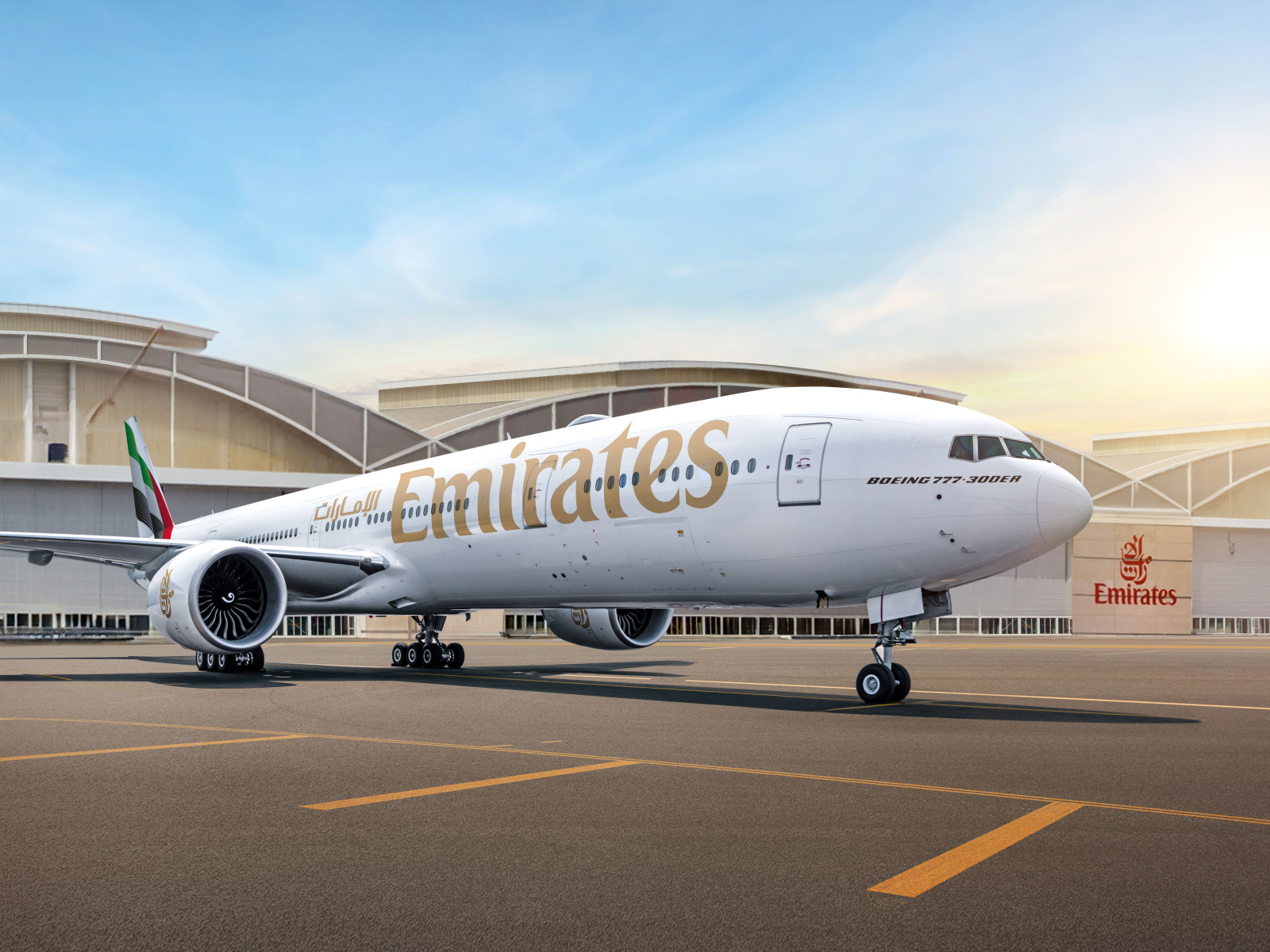Emirates Group reported strong results across the board for the financial year ending March 31, 2024, with the group reporting a 71% increase year-on-year (YoY) in its overall profits at 18.7bn dirhams ($5.1bn). This was largely driven by its airline's record profits of 17.2bn dirhams ($4.7bn), marking a 63% from the previous financial year. In addition, its airport services unit dnata saw profits surge in the financial year to 1.4bn dirhams ($387 million), up from approximately 300 million dirhams ($90 million) a year prior.
The group's total revenues were up 15% YoY to 137.3bn dirhams ($37.4bn). Emirates airline's revenue climbed 13% YoY to 121.2bn dirhams ($29.3bn), driven by a 21% increase in capacity, measured in available seat kilometres (ASKs), and 20% increase in overall capacity, measured in available tonnes kilometres (ATKs). The group also benefited from dnata's nearly 30% surge in revenues to 19.2bn dirhams ($5.2bn), up from 14.9bn dirhams ($4.1bn) in the previous financial year.
The airline saw its passengers numbers climb nearly 20% to 51.9 million, up from 43.6 million, for the financial year, with its load factor was up 0.4 percentage point to 79.9%. In addition, it carried 2.2 million tonnes of cargo throughout the year, up 18% from 1.8 million tonnes in the year prior. For dnata, its cargo handled increased 5% YoY to 2.9 million tonnes in the financial year.
""The business outlook is positive, and we expect customer demand for air transport and travel to remain strong in the coming months,"" said Emirates chairman and chief executive, Emirates airline and group Ahmed Bin Saeed Al Maktoum.
The group's total assets were at 163.9bn dirhams ($12.8bn), with its cash balance at the end of the financial year at 47.1bn dirhams ($12.8bn). Its total equity and liabilities was at 163.9bn dirhams ($44.6bn), with its total equity at 46.5bn dirhams ($12.7bn). The group said: ""Emirates continued to meet all its regular aircraft-related payment obligations and repaid an additional 2.2bn [dirhams] ($596 million) from the 17.5bn [dirhams] ($4.8bn) borrowed during the COVID-19 crisis.""
Its consolidated operating costs were up 8% to 101.2bn dirhams ($27.6bn) with employee costs at 16.3bn dirhams ($4.4bn), up from 13.6bn dirhams ($3.7bn). Reuters reported that following the strong results, airline staff would receive a bonus equivalent to 20 weeks of pay, citing an internal email shared with the outlet.
Fuel accounted for 34% of operating costs and had increased from 33.7bn dirhams ($9.2bn) to 34.2bn dirhams ($9.3bn) YoY.
Al Maktoum added: ""As always, we will keep a close watch on costs and external factors such as oil prices, currency fluctuations, and volatile environments caused by socio-political changes.""
The group said that ""in response to the challenges posed by volatile fuel markets during the financial year"", the group has ""deployed simple forwards and options"" across products such as brent and jet fuel to reduce this financial year's costs, as well as securing ""significant"" future hedging volumes. It added that it is navigating through the currency exchange rate risk through the use of currency options, forward contracts, and natural hedges to mitigate impacts for the year ahead.
Though, the group added that it had extended the leases of 12 777 aircraft and one spare engine in the financial year as a result of the ""continued supply chain issues delaying delivery of aircraft on order and to meet our operational requirements.""
Its total fleet count at the end of the financial year remained the same as the year prior at 260 units and the average age of its fleet was just over 10 years. Its fleet consists of 144 Boeing aircraft and 116 A380 aircraft.
Its order book at the end of the year stands at 310 aircraft, following its combined $58bn order for 110 additional aircraft at the 2023 Dubai Airshow. The order consisted of 55 additional 777-9s, 35 777-8s, five 787 Dreamliners, and 15 additional A350-900 aircraft. These aircraft will replace its older jets and its first A350 aircraft is expected to join its fleet this summer.
Emirates airlines reports $5bn profit for the year, fuel puts pressure on costs

